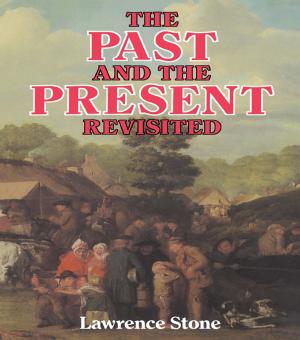| Author: | Fiona M. Palmer | ISBN: | 9781351697484 |
| Publisher: | Taylor and Francis | Publication: | February 10, 2017 |
| Imprint: | Routledge | Language: | English |
| Author: | Fiona M. Palmer |
| ISBN: | 9781351697484 |
| Publisher: | Taylor and Francis |
| Publication: | February 10, 2017 |
| Imprint: | Routledge |
| Language: | English |
Today Vincent Novello (1781-1861) is remembered as the father of the music-publishing firm. Fiona Palmer's evaluation of Novello the man and the musician in the marketplace draws on rich primary sources. It is the first to provide a rounded view of his life and work, and the nature of his importance both in his own time and to posterity. Novello's early musical training, particularly his experience of music-making in London's embassy chapels, influenced him profoundly. His practical experience as director of music at the Portuguese Embassy Chapel in Mayfair informed his approach to editing and arranging. Fundamental moral and social attitudes underpinned Novello's progress. Ideas on religion, education and the function of family and friendship within society shaped his life choices. The Novello family lived in turbulent times and was widely-read, discussing politics and religion and not only the arts at its social gatherings. Within Vincent and Mary Novello's close circle were radical thinkers with republican views - such as Leigh Hunt and Charles Cowden Clarke - who saw sociability as a means of reorganizing society. Thematic studies focus on Novello as practical musician and educator, as editor, and as composer. His connections with institutions such as the Covent Garden and Pantheon Theatres, the Philharmonic Society and Moorfields Chapel, together with his adjudicating and teaching activities, are examined. In his wide-ranging editorial work Novello found his true vocation positioning himself as preservationist, pioneer and philanthropist. His work as composer, though unremarkable in quality, mirrored the demands and expectations of his consumers. Novello emerges from this study as a visionary who single-mindedly pursued greater musical knowledge for the benefit of everyone.
Today Vincent Novello (1781-1861) is remembered as the father of the music-publishing firm. Fiona Palmer's evaluation of Novello the man and the musician in the marketplace draws on rich primary sources. It is the first to provide a rounded view of his life and work, and the nature of his importance both in his own time and to posterity. Novello's early musical training, particularly his experience of music-making in London's embassy chapels, influenced him profoundly. His practical experience as director of music at the Portuguese Embassy Chapel in Mayfair informed his approach to editing and arranging. Fundamental moral and social attitudes underpinned Novello's progress. Ideas on religion, education and the function of family and friendship within society shaped his life choices. The Novello family lived in turbulent times and was widely-read, discussing politics and religion and not only the arts at its social gatherings. Within Vincent and Mary Novello's close circle were radical thinkers with republican views - such as Leigh Hunt and Charles Cowden Clarke - who saw sociability as a means of reorganizing society. Thematic studies focus on Novello as practical musician and educator, as editor, and as composer. His connections with institutions such as the Covent Garden and Pantheon Theatres, the Philharmonic Society and Moorfields Chapel, together with his adjudicating and teaching activities, are examined. In his wide-ranging editorial work Novello found his true vocation positioning himself as preservationist, pioneer and philanthropist. His work as composer, though unremarkable in quality, mirrored the demands and expectations of his consumers. Novello emerges from this study as a visionary who single-mindedly pursued greater musical knowledge for the benefit of everyone.















